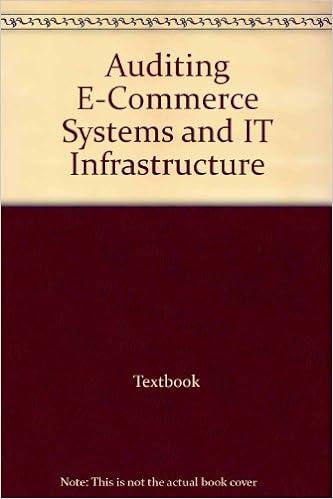Answered step by step
Verified Expert Solution
Question
1 Approved Answer
Audit Procedures for Retail Companies: Auditing retail companies involves a series of tailored procedures aimed at evaluating the accuracy of financial statements, internal controls, and
Audit Procedures for Retail Companies:
Auditing retail companies involves a series of tailored procedures aimed at evaluating the accuracy of financial statements, internal controls, and compliance with regulatory requirements specific to the retail industry. Here's a detailed overview of some common audit procedures for retail companies:
Inventory Counting: Auditors conduct physical counts of inventory to verify its existence, quantity, and valuation. This involves selecting a sample of inventory items, observing the counting process, and reconciling the counts with inventory records. Inventory counting is crucial in retail audits due to the significant investment in inventory and the potential for inventory shrinkage or theft.
Revenue Recognition: Auditors review sales transactions and revenue recognition policies to ensure compliance with accounting standards. This includes verifying the accuracy of sales invoices, assessing the collectability of accounts receivable, and confirming the recognition of revenue at the appropriate time, typically when goods are delivered or services rendered.
Cash Handling Procedures: Auditors assess the effectiveness of cash handling procedures to mitigate the risk of fraud or misappropriation. This includes reviewing cash handling policies, testing cash reconciliations, and evaluating controls over cash receipts and disbursements, such as segregation of duties and authorization protocols.
Accounts Receivable Verification: Auditors verify the existence and valuation of accounts receivable by confirming balances with customers and analyzing aging schedules. This helps ensure that receivables are collectible and properly stated in the financial statements.
Sales Returns and Allowances: Auditors review sales returns and allowances to ensure that they are properly recorded and classified. This involves examining documentation supporting returns, assessing the reasonableness of allowances, and confirming that returns are deducted from sales revenue in the appropriate period.
Internal Controls Evaluation: Auditors assess the effectiveness of internal controls related to inventory management, sales processing, and financial reporting. This includes testing the design and operating effectiveness of key controls, such as inventory tracking systems, sales order processing, and reconciliation procedures.
Compliance Testing: Auditors perform tests to ensure compliance with relevant laws, regulations, and industry standards. This may include reviewing tax filings, assessing compliance with consumer protection laws, and evaluating adherence to industryspecific regulations, such as those governing food safety or product labeling.
Objective Type Question:
In auditing retail companies, which audit procedure involves confirming balances with customers and analyzing aging schedules to verify the existence and valuation of accounts receivable?
A Inventory Counting
B Revenue Recognition
C Cash Handling Procedures
D Accounts Receivable Verification

Step by Step Solution
There are 3 Steps involved in it
Step: 1

Get Instant Access to Expert-Tailored Solutions
See step-by-step solutions with expert insights and AI powered tools for academic success
Step: 2

Step: 3

Ace Your Homework with AI
Get the answers you need in no time with our AI-driven, step-by-step assistance
Get Started


